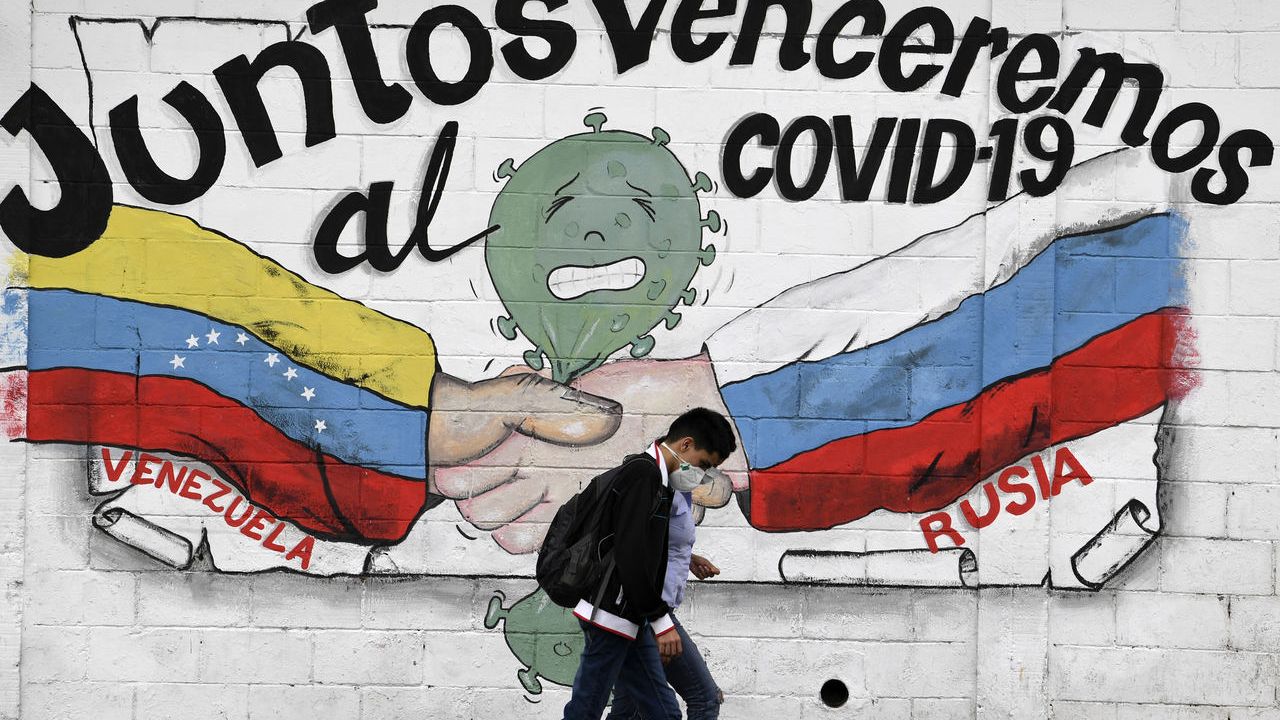RIO DE JANEIRO, BRAZIL – Nicolás Maduro announced this Sunday, March 21st, a set of restrictive measures to tighten the national quarantine, in view of the increase of COVID-19 infections in the Caribbean country, which has been described by the Executive as a “second wave” of contagions.
In a televised speech, the President informed that the so-called radical quarantine, which implies the cessation of all activities which are not considered essential, such as health or food, will be extended until Sunday, April 4, which means that the activities of the coming Holy Week will be restricted or suspended.

Maduro had previously said that this holiday, which will begin on Sunday, March 28, would take place under the “flexibilization” modality, which allows commercial activities and mobility throughout the country; however, he now decided to suppress normality during those days, in view of the increase in the daily number of coronavirus infections.
Furthermore, he remarked, this measure is due to the “strong” spread of the Brazilian variant of COVID-19 which, he explained, is present in several states of the country, with special emphasis in Caracas and its neighboring states of Miranda and La Guaira, as well as in the southern state of Bolivar, bordering Brazil.
Additionally, Maduro ruled out the reopening of educational centers planned for April. “For now it is not possible, for now we are not going to start on-site classes”, he stated. According to what he added, during the days of quarantine flexibilization, parents will be able to have interaction with teachers for the revision of homework. “Face-to-face classes will be held until further notice,” he said.
CASES ARE GROWING
“For six months we kept control of the pandemic, that has changed,” he said, recalling that since last September Venezuela did not register a thousand new cases of COVID-19, while the government balance on Saturday accounted for 1,161 infections.
Currently, according to him, the country has a rate of 27 positive cases per 100,000 inhabitants and has “increased the occupation of hospital beds”, although he did not offer details on this aspect that had already been denounced by the medical profession.
In addition, Maduro said that there has been a “relaxation” in the biosecurity measures, which has led “everybody” to have parties in their homes or organize meetings despite the risk of becoming infected because these are Venezuelans who “have lost respect and fear of the coronavirus”.
MORE RESTRICTIONS
Although Venezuela is today in “better conditions” to face the pandemic, the President assured, it is necessary to apply several measures to try to cut the transmission of the disease in the country, which up to now has accumulated a little more than 150,000 contagions and 1,483 deaths.
Likewise, the Executive approved a plan to disinfect communities where coronavirus patients reside as well as public transportation units, to reinforce the investigation of suspected cases and to include at-risk groups in the vaccination against COVID-19, something already contemplated, according to Maduro.
The Chavista leader added that the vaccination of teachers with doses of the vaccines donated by China has already begun. “With the vaccines that are going to arrive we are going to continue vaccinating to reach 100% of the education and health personnel”. At the same time, he pointed out that in the first week of April the vaccines from Cuba, Soberana-02 and Abdala, will arrive for the tests carried out by the Caribbean nation.
On February 18, vaccination began in Venezuela. Between February 13 and March 6, 200,000 doses of the Russian Sputnik V inoculation arrived, which represent 2% of the total of 10 million initially agreed in December between Caracas and Moscow. In the meantime, Venezuela received on March 1 a batch of 500,000 doses of Vero Cell vaccine from the Chinese state-owned company Sinopharm, donated by the Asian giant.
Maduro informed days later that his government invested 200 million dollars in the 10 million doses of the Russian vaccine, which should be in the country by April, when Venezuela is expected to be in a position to deploy a massive vaccination campaign.
Source: infobae

